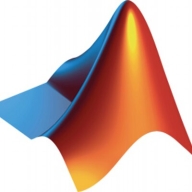

Databricks and MathWorks Matlab are in the data analysis and engineering category. Databricks has the upper hand in scalability and collaboration, whereas MathWorks Matlab is superior in computational capabilities and algorithm support.
Features: Databricks offers scalability and real-time collaboration, integrating seamlessly with various data sources for large-scale data processing. MathWorks Matlab provides precise computational abilities, diverse algorithm libraries, and effective modeling capabilities, ideal for intricate mathematical operations.
Ease of Deployment and Customer Service: Databricks leverages cloud-native architecture for quick deployment, offering responsive cloud support. MathWorks Matlab involves a more detailed deployment process, particularly on local servers, but is backed by extensive documentation and technical support.
Pricing and ROI: Databricks presents flexible pricing models that adapt to different workloads, supporting a favorable ROI due to its scalability. MathWorks Matlab demands a higher initial expense, justified by its specialized computing features, appealing to users needing advanced mathematical analysis.
| Product | Market Share (%) |
|---|---|
| Databricks | 13.9% |
| MathWorks Matlab | 1.1% |
| Other | 85.0% |


| Company Size | Count |
|---|---|
| Small Business | 25 |
| Midsize Enterprise | 12 |
| Large Enterprise | 56 |
| Company Size | Count |
|---|---|
| Small Business | 2 |
| Midsize Enterprise | 1 |
| Large Enterprise | 4 |
Databricks offers a scalable, versatile platform that integrates seamlessly with Spark and multiple languages, supporting data engineering, machine learning, and analytics in a unified environment.
Databricks stands out for its scalability, ease of use, and powerful integration with Spark, multiple languages, and leading cloud services like Azure and AWS. It provides tools such as the Notebook for collaboration, Delta Lake for efficient data management, and Unity Catalog for data governance. While enhancing data engineering and machine learning workflows, it faces challenges in visualization and third-party integration, with pricing and user interface navigation being common concerns. Despite needing improvements in connectivity and documentation, it remains popular for tasks like real-time processing and data pipeline management.
What features make Databricks unique?In the tech industry, Databricks empowers teams to perform comprehensive data analytics, enabling them to conduct extensive ETL operations, run predictive modeling, and prepare data for SparkML. In retail, it supports real-time data processing and batch streaming, aiding in better decision-making. Enterprises across sectors leverage its capabilities for creating secure APIs and managing data lakes effectively.
We monitor all Data Science Platforms reviews to prevent fraudulent reviews and keep review quality high. We do not post reviews by company employees or direct competitors. We validate each review for authenticity via cross-reference with LinkedIn, and personal follow-up with the reviewer when necessary.